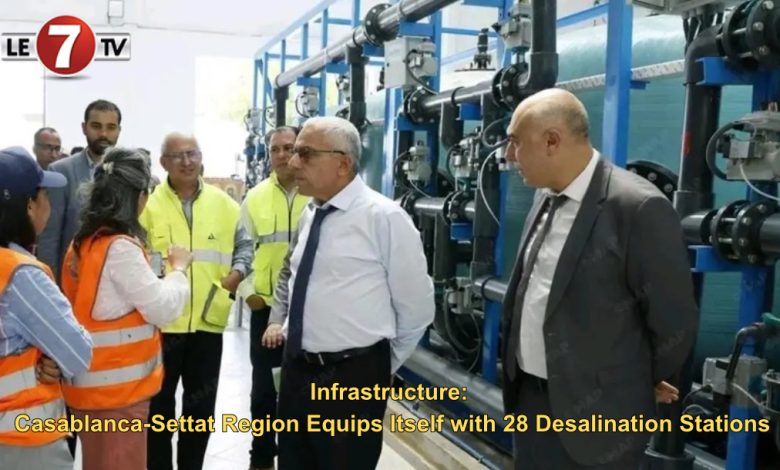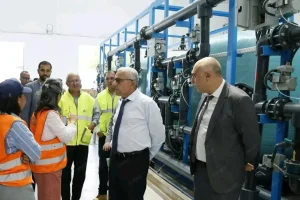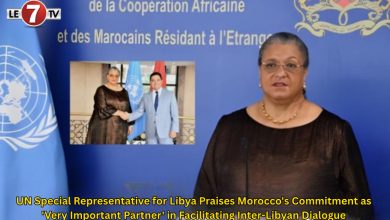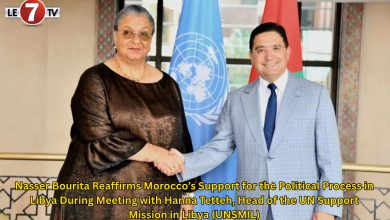Infrastructure: Casablanca-Settat Region Equips Itself with 28 Desalination Stations
The Casablanca-Settat region is on track to acquire nearly thirty desalination stations as part of efforts to address water stress and the decline in rainfall over recent years.


Specifically, 28 single-block seawater desalination and demineralization stations (SMB) are being implemented to ensure the population’s supply of drinking water.
“To date, 17 out of the planned 28 SMB stations across the region are already operational,” said Abdellatif Maâzouz, President of the Casablanca-Settat Regional Council, in a statement to MAP.
Speaking during a visit on Monday to several of these stations in Berrechid and Settat, Maâzouz highlighted that these projects have required an investment of 400 million dirhams (MDH), with 272 MDH contributed by the state and 128 MDH by the Region.
He praised the positive impact of these stations on supplying drinking water to residents and called for strict, daily monitoring of this vital resource and greater public awareness of the challenges involved.
“Citizens, in particular, must do their part by avoiding any waste of water,” Maâzouz emphasized.
He explained that this initiative is part of an integrated approach, reinforcing other key infrastructure projects such as the “water highway” connecting the Sebou and Bouregreg river basins, and the Jorf Lasfar desalination plant, while awaiting the completion of the major Casablanca desalination plant. This future facility is expected to have a treatment capacity of 200 million cubic meters per year, which will cover about 80% of the region’s drinking water needs once operational.
This innovative project is part of the mission of the Regional Multiservice Company (SRM) Casablanca-Settat, tasked with securing the region’s drinking water supply.
The output of the SMB stations varies, with some producing as little as 3 liters per second and others exceeding 30 liters per second. These single-block stations use reverse osmosis technology, which ensures high-quality treated water and is also considered an environmentally friendly solution.
Funded by the Ministry of the Interior, this initiative is part of the national effort to combat water scarcity, making it possible to treat and utilize groundwater for drinking purposes and meet the growing demand for this essential resource.
Editorial team/le7tv








